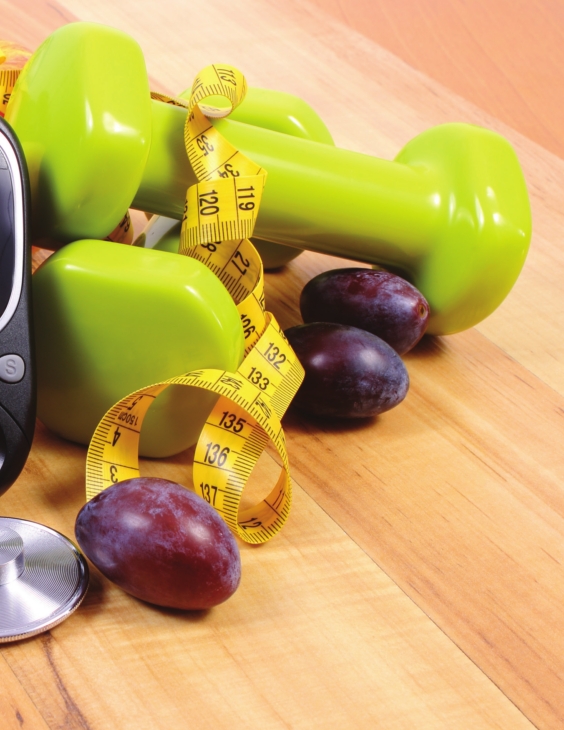WHAT?


I have Type 2 Diabetes … Reality kicks in!
So … you’ve gotten over the shock of finding out that you have Type 2 diabetes.
You’ve spoken to your family, friends and co-workers and shared with them that you now have Type 2 diabetes. Once they’ve gotten over the shock of what you’ve just shared, they may begin to ask a multitude of questions that are hard to answer and possibly hard to comprehend. Will you ever be able to eat the foods that you like? Are you going to need insulin? Do you have “bad diabetes”? Will you be able to continue going out to eat and having cocktails with us after work?
Will you have to stick your finger and check your blood sugar every day? Can you still compete in our 5K run? How did you “catch” diabetes?
Yikes! Make it stop! All of these questions are common concerns and issues for people newly diagnosed with diabetes. This is why it is so important for you to begin your education on how to self-manage your diabetes as soon as possible. Learning how to manage your blood sugar on a daily basis will calm your fears and enable you to gain back control of your life. Talk to your primary care physician (PCP) and acquire a referral to an out-patient diabetes education center that provides comprehensive education related to diabetes self-management and control.
Your management plan needs to include individualized education and suggestions on the following topics: learning all you can about your type of diabetes; choosing how much, what and when to eat; becoming and staying physically active; taking prescribed medications as instructed; checking your blood sugar at planned intervals during the day; getting and understanding lab work ordered by your PCP; understanding the signs, symptoms and treatment for low and high blood sugar; and dealing with the emotional and psychological impact of the diagnosis of diabetes.
I know this sounds like a lot to learn, and please know that it’s not going to occur with just one visit. Your management team (PCP, certified diabetes nurse and dietitian educators, your pharmacist, psychologist and possibly an endocrinologist) will work with you to create a management plan that you can live with on a day-to-day basis.
I recommend focusing your management plan on these three areas initially: healthy eating, exercise and checking your blood sugar levels.
Healthy eating for diabetes is not as restrictive as it was in the past. The diet is not a “one size fits all” plan since people’s lives include so many different opportunities and options for meals, beverages and snacks. Before your body developed diabetes, your blood sugar automatically stayed in control no matter what you ate. This is no longer true! Your focus now needs to be on eating a variety of foods, including whole grains, low-carb vegetables, non-fat dairy, lean proteins, fruits and heart-healthy fats. Work with a dietitian to individualize your eating plan based on your work, home and family life.
Individualizing your eating plan enables you to live with your new diet and readily incorporate it into your daily life. If this is not accomplished, following and sticking to your new plan will not be easy. Eating healthy is more than just counting your carbohydrates and dividing by 15 – a common guideline often taught to newly diagnosed diabetics. You need to learn that the focus is not on just one food group but on your entire plate.
Your doctor or diabetes team members may suggest that weight loss may benefit your diabetes control. Losing weight will not only improve your blood sugar, it will also have a positive effect on your blood pressure and your “good” and “bad” cholesterol levels. Losing 10-15 pounds, and keeping it off, can make all the difference in your daily control.
Exercise and becoming more physically active is a very important part of managing your diabetes and becoming more “heart healthy.”
Almost any type of exercise will help you feel better and help control your blood sugar. Examples of physical activity include swimming, stretching, walking, biking, taking the stairs at work, using resistance bands, yoga and lifting weights. Deciding what activity is best for you must include your physical limitations, your work and home life schedule and what exercises you actually enjoy. Make sure to choose an exercise program that you can live with. Don’t start anything that you can’t or won’t continue regularly!
Checking your blood sugar, with a blood glucose meter, is the best and easiest way to track or measure how food, activity/exercise and your medication are controlling your blood sugar.
When you think about it, you are carrying your own special “lab” with you every day. You may need to check your blood sugar anywhere from one to six times a day. This will be decided between you and your diabetes team. Make sure to work with your diabetes educator to find a meter that is supported by your insurance company and a meter that is easy for you to use.
Just remember, the diagnosis of diabetes is not something to take lightly, but it is a disease that you can control … once you understand how to control it!
Lisa Stansbury, MS, LDN, RD, CDE is a licensed dietitian/nutritionist and a certified diabetes educator. She has been in practice since 1981. She runs the nutrition program for Freedom From Obesity.
